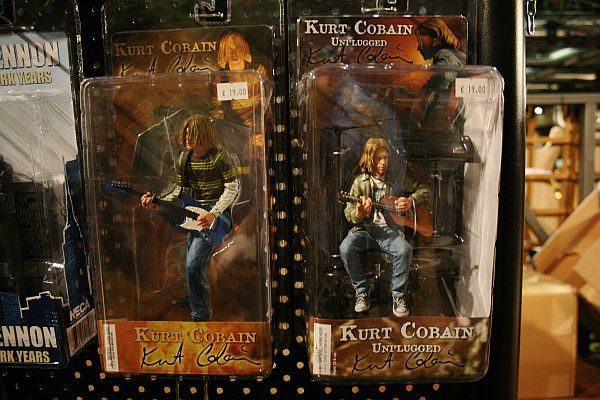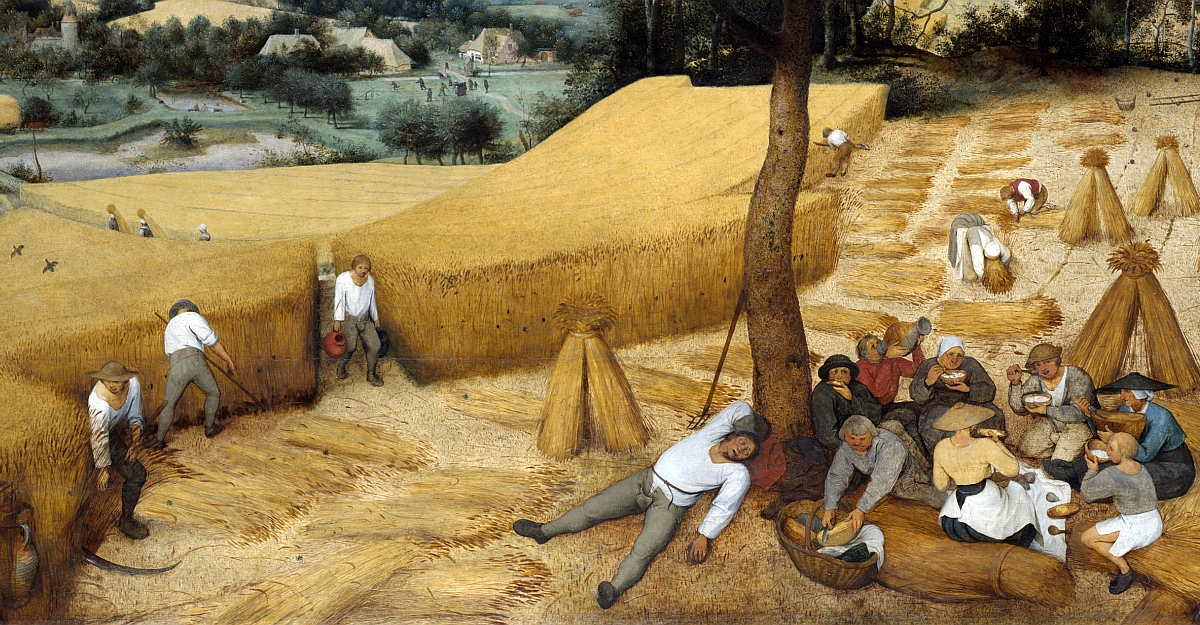I suffer a deep and persistent nostalgia for the 1990s. Specifically, 1994. That was the year before my two friends were killed in a car crash. It’s sad. We were all eighteen. I’m forty-three now. They’re still eighteen. That trauma changed me in ways I couldn’t appreciate then. Some lessons take a lifetime to learn.
I return to that decade, with its peculiar mood of listless anxiety and try to find some comfort, some meaning in it.
The internet makes it easy, so I travel back to the nineties. I re-hear its music, I re-watch its films, I even search random footage on YouTube and my heart jumps when I find thirty seconds of flat, grainy video footage of white kids with dreadlocks moshing to the Beastie Boys at Lollapalooza 1994. I was there too. With dreadlocks.
It’s pathetic. Was and is.
I’m not alone in my sentiment. A generation of former teens and twenty-somethings remember those years as well. They are online with me. They, too, scour the internet and post wistful comments under top-ten lists and YouTube clips: Those were the days. This takes me back to happier times, etcetera.
Were they?
Adam Yauch of the Beastie Boys died of cancer in 2012. He was forty-seven. Kurt Cobain was meant to play Lollapalooza in 1994. He didn’t make it. Maybe therein lies the reason for the nostalgia, the pain of longing to return. Time marches, they say. Like an army, it crushes everyone in its path: celebrities, along with your grandparents, your aunts and uncles, colleagues you knew of but weren’t close to, friends, your parents. They all die. Time robs us of vitality. It was a gift, but in youth we mistook it for a birthright. We didn’t realise it yet. We imagined we would always have enough time. Maybe that’s why back then seems like happier times. I’m not convinced they were.
To ‘us’, the white, suburban, middle-class, western youth of that era – the mascots of Generation X – the nineties felt like a letdown, a second-rate Elvis impersonation of the 1960s, a commercial pastiche of its iconoclasm. Ask anyone who attended Woodstock 1994.
Our revolution was technological, not social; we were more likely to experience it at home behind a computer screen than on the streets. The revolution was televised, or at least it was downloaded at 28.8 kilobits per second via a dial-up modem. The sixties, as our parents described them, seemed embellished, self-important. But the delusion of ‘flower power’ also sounded kind of wonderful. We were the generation of global warming and AIDS.
But my friends and I had more in common with the sixties than we realised. That decade’s counterculture was predominantly a middle class-experience. Migrants, people of colour, the poor and working classes were mostly too busy working, or staying out of trouble, or getting drafted to Vietnam to participate in the sixties that way. The comfortable malaise we experienced as North American teenagers in the nineties was also a predominantly white, middle-class privilege, enabled by our parents’ generosity, a largesse they showered on us in part to distinguish themselves from their own parents’ frugality. In the nineties, the combination of freedom and listlessness resulted in a kind of apathetic torpor, which Richard Linklater captured to critical acclaim in his 1990 film, Slacker.
Some of us did ‘fight the system’ or scuffled it, rather. My friends and I marched against human rights abuses, protested the excesses of the World Trade Organization. I mostly dabbled in activism. For me, protest was more social than existential and I got the feeling most of my friends felt that way too, which is why we more commonly submitted to guiltless pleasures like smoking indoors and having only the vaguest sense of what carbon dioxide was. We rationalised our slacking with an edge of melancholy, which somehow redeemed our central deficits of knowledge, inspiration and creativity – at least to our eyes.
Between willful distractions, everything in the nineties felt lazy, in need of a jolt. Popular culture offered few answers and little direction. With a few exceptions – mostly in hip hop – popular music turned away from social issues and focused more on personal angst. Nirvana’s revolutionary Smells Like Teen Spirit (1991), the best song of the nineties according to Rolling Stone, was no anthem for an alternative political idea. Nirvana’s outburst of raw emotion simply harmonised with the existential ennui that pervaded Generation X. The song made no sense but felt intense. Like life.
Television offered no deeper insight than popular music. On TV, the easy, de-fanged political humour of Saturday Night Live and Jay Leno ruled late night, while Seinfeld – the show about nothing – reflected life’s banalities back at prime-time audiences.
There was a prime-time television audience, though. One could belong to that. If you wanted news and entertainment, you turned to TV, because the web, pre-1994, was still an enclave of nerds and people with security clearance.
Offline, you could still believe that your perspective was fresh, your feelings original, because social media had not yet collapsed personal reactions into a singular, hash-tagged cultural response. Communication was decidedly top-down, not bottom up. News and information were aimed at you, not foraged for as is the case today. Tuning out from corporate media was a form of social protest. It was as easily said as done. No-one I knew owned a mobile phone.
That said, my socially conscious friends and I bought into consumerism, played our role in corporate culture, far more than we were likely to admit. Even our activism was a consumer act. We wore the ‘right’ buttons (WTO); the ‘right’ t-shirts (I Am Not A Target Market). Now we tweet. At least that’s free and requires no uniform.
Epistemologically, everything was relative. In academia, postmodernism informed the zeitgeist which meant that nothing was more important than anything else. Everything was subjective. There was no ‘Truth’, which meant there was no morality (not really), which meant there were no just causes, which didn’t matter anyway because there weren’t any causes to fight for. Years later, the singer Beck said that he wrote protest songs in the nineties for a generation who didn’t have anything to protest about.
But, of course, there were things to be upset about. There were causes. I was mostly just too lazy and self-involved to be aware of them or meaningfully respond: sweatshops, inequality, racism, de-industrialisation, environmental degradation, Rwanda, Bosnia – these were all real issues, which I too easily dismissed or miscalculated as the last gasps of empires that hadn’t yet realised this was a New World Order; globalization demanded necessary sacrifices. This was the End of History and my generation had front-row seats.
Google ‘1990s nostalgia’ and most of what you get back are endless lists and clips: 48 Reasons ’90s Kids Had the Best Childhood; 39 Awesome Things Only 90s Kids Will Remember. Nearly all of it is an indiscriminate collection of stuff people owned back then: oversized cell phones, inflatable furniture and hacky sacks, VHS tapes and a cover box of Windows 95. To the oracles at BuzzFeed, nineties nostalgia feeds on a diet of consumer goods.
The editors of those lists miss the point. The popularity of nineties fan sites tell us more about the nature of nostalgia than it does about the decade itself.
There is nothing particularly special about the nineties. In the timeline of world history, that decade will register as a blip of relative peace and prosperity (depending on who you ask). What is remarkable about that period for Gen Xers is that we were young then. We can look back and feel comforted by how quaint things seemed or how harmless the technology looked. After all, the Tamagotchi digital pet was far from an apocalyptic vision of artificial intelligence. The seam between virtual and actual reality was clear. But I suspect it is the votive act of remembering itself that brings most people on their nineties quests.
People’s ability to create and latch on to screen memories is a uniquely human characteristic. My parents feel nostalgic about the sixties and seventies, despite that period’s open misogyny and Cold War tensions. I expect dew-eyed remembrances also grip ninety-year-olds who lived through World War II, not because they particularly miss the life they had or the world that was, but because they miss the time they had ahead of them. I expect nostalgia is part of the human experience of growing old and marking increased distances between memories. Like Proust, we are all in search of lost time and increasingly aware of how little we have left.
I now look back on my privileged and prolonged adolescence and wonder if my own children will eventually remember the 2020s with the same tenderness I regard the 1990s. My guess is they will. Despite everything.
For all living generations, I expect time feels more precious now.
That, too, is a gift.
Image: Alessio Bragadini, Flickr






